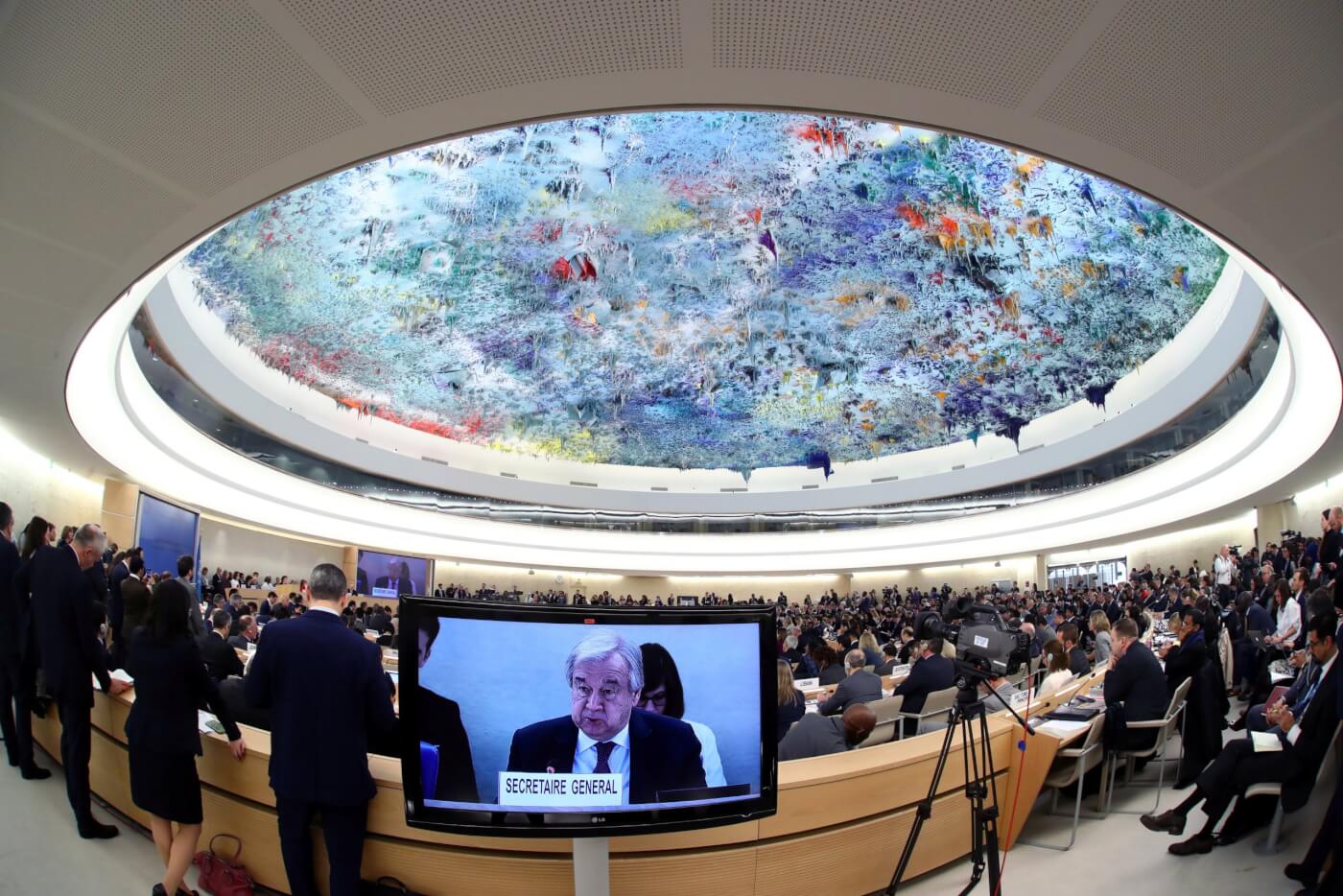The head of the United Nations used his opening speech of the 43rd session of the Human Rights Council to launch a seven-point “Call to Action” on human rights. U.N. Secretary-General Antonio Guterres made the appeal to countries, businesses and all people to help renew and revive human rights across the globe in what marks the seventy-fifth anniversary year of the United Nations.
Speaking during what is known as the council’s “high-level segment”, Guterres said:
“I have come to the Human Rights Council — the fulcrum for international dialogue and cooperation to advance all human rights — to launch a Call to Action,”
He went on to outline his seven point plan which involves linking human rights to issues such as sustainable development, crisis prevention, gender equality, the development of the digital age, and freedom of expression and civil society, among other things.
The U.N. chief said now was to the to speak out because “human rights are under assault.”
“Success must be measured by the yardstick of meaningful change in people’s lives,” he said. “As a United Nations family, a culture of human rights must permeate all we do.”
Guterres pledged to utilize the full weight of his office and the UN family to fulfil the “Call to Action” and highlighted the enduring value of the Universal Declaration of Human Rights; the milestone document borne out of the Second World War and a desire to prevent such suffering from ever happening again.
Highlighting the document’s proclamation that human rights are ‘humanity’s highest aspiration’, Mr. Guterres insisted that all States had a responsibility to protect and promote people’s “dignity and worth”.
“Human rights — civil, cultural, economic, political and social — are both the goal and the path,”
Antonio Guterres, Secretary-General of the United Nations
His speech also condemned rising racism, white supremacy and extremism, and lamented violence against women and girls “as the world’s most pervasive human rights abuse.”
In a reference to what are commonly known as “killer robots” he reiterated his stance that machines should never be given “lethal capacity outside human judgment or control.”
Echoing the call for change, the High Commissioner for Human Rights, Michelle Bachelet said that although threats to human rights were on the rise, so were practical, actionable solutions to these issues. Bachelet stressed that the human rights agenda offers guidance to resolve grievances and conflicts, improve lives, and create greater justice, more peace and more sustainable development.
Speaking to the council, Bachelet said:
“I ask you to harness these solutions, and the power of cooperative action, to ensure a more equitable and sustainable world – for all of us; for today’s youth; and for tomorrow,”
Guterres has previously been criticised for his low-key approach to human rights, accused by his former advisors of prioritising avoiding conflicts with powerful member states such as the United States, Russia, China, and Saudi Arabia. So, while his “Call to Action” is generally being welcomed by rights groups, many warn that it must now translate into bold leadership.
Following his announcement, Netsanet Belay, Amnesty International’s Research and Advocacy Director, said:
“We welcome any initiative that seeks to put human rights front and centre at the UN across its operations. To ensure the success of this initiative, the Secretary-General must lead by example in his willingness to speak up when abuses are taking place, and must ensure adequate funding for the protection of human rights within the UN. Mr. Guterres has described his new initiative as a call for action. Now we need to see the action.”
Kenneth Roth, Executive Director of Human Rights Watch, echoed this sentiment and urged Guterres to be more direct in his statements, saying:
“By providing a strong voice advocating for victims and condemning abusers, the Secretary-General can stand tall against governments committing serious rights violations – whether it’s the mass arbitrary detention of Uyghurs in China, atrocities committed against Myanmar’s Rohingyas, indiscriminate Russian-Syrian bombing of civilians in Idlib, or the forced separation of children from their parents at the U.S. border…But this initiative will succeed only if the Secretary-General provides robust and regular public commentary, and does not shy away from naming abusers.”

